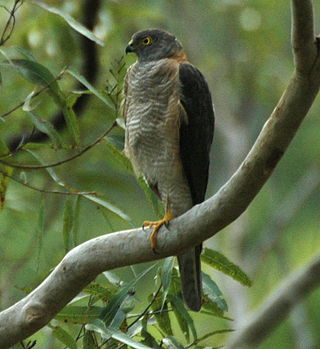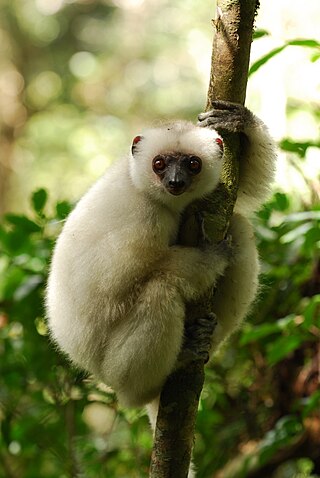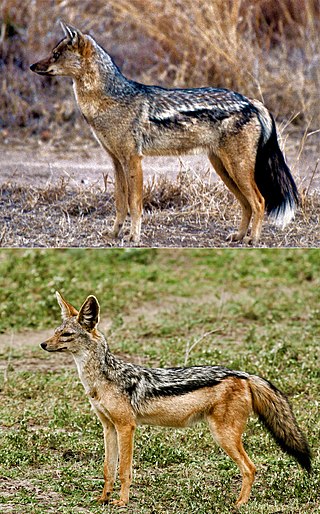
Penguins are a group of aquatic flightless birds from the order Sphenisciformes of the family Spheniscidae. They live almost exclusively in the Southern Hemisphere: only one species, the Galápagos penguin, is found north of the Equator. Highly adapted for life in the ocean water, penguins have countershaded dark and white plumage and flippers for swimming. Most penguins feed on krill, fish, squid and other forms of sea life which they catch with their bills and swallow whole while swimming. A penguin has a spiny tongue and powerful jaws to grip slippery prey.
The term "big cat" is typically used to refer to any of the five living members of the genus Panthera, namely the tiger, lion, jaguar, leopard, and snow leopard, as well as the non-pantherine cheetah and cougar.

Accipiter is a genus of birds of prey in the family Accipitridae. With 49 recognized species it is the most diverse genus in its family. Most species are called goshawks or sparrowhawks, although almost all New World species are simply known as hawks. They can be anatomically distinguished from their relatives by the lack of a procoracoid foramen. Two small and aberrant species usually placed here do possess a large procoracoid foramen and are also distinct as regards DNA sequence. They may warrant separation in the old genus Hieraspiza.

The guenons are Old World monkeys of the genus Cercopithecus. Not all members of this genus have the word "guenon" in their common names; also, because of changes in scientific classification, some monkeys in other genera may have common names that include the word "guenon". Nonetheless, the use of the term guenon for monkeys of this genus is widely accepted.

Mountain coatis are two species of procyonid mammals from the genus Nasuella. Unlike the larger coatis from the genus Nasua, mountain coatis only weigh 1.0–1.5 kilograms (2.2–3.3 lb) and are endemic to the north Andean highlands in South America.
Graziana klagenfurtensis is a species of minute freshwater snails with an operculum, aquatic gastropod molluscs or micromolluscs in the family Hydrobiidae. This species is endemic to Austria.
Graziana lacheineri are minute freshwater snails with an operculum, aquatic gastropod molluscs or micromolluscs in the family Hydrobiidae. This species is endemic to Austria.
Graziana pupula is a species of minute freshwater snail with an operculum, aquatic gastropod molluscs or micromolluscs in the family Hydrobiidae. Distribution of this species include Austria, Italy and Slovenia.

The World's 25 Most Endangered Primates is a list of highly endangered primate species selected and published by the International Union for Conservation of Nature (IUCN) Species Survival Commission (SSC) Primate Specialist Group (PSG), the International Primatological Society (IPS), Global Wildlife Conservation (GWC), and Bristol Zoological Society (BZS). The IUCN/SSC PSG worked with Conservation International (CI) to start the list in 2000, but in 2002, during the 19th Congress of the International Primatological Society, primatologists reviewed and debated the list, resulting in the 2002–2004 revision and the endorsement of the IPS. The publication was a joint project between the three conservation organizations until the 2012–2014 list when BZS was added as a publisher. The 2018–2020 list was the first time Conservation International was not among the publishers, replaced instead by GWC. The list has been revised every two years following the biannual Congress of the IPS. Starting with the 2004–2006 report, the title changed to "Primates in Peril: The World's 25 Most Endangered Primates". That same year, the list began to provide information about each species, including their conservation status and the threats they face in the wild. The species text is written in collaboration with experts from the field, with 60 people contributing to the 2006–2008 report and 85 people contributing to the 2008–2010 report. The 2004–2006 and 2006–2008 reports were published in the IUCN/SSC PSG journal Primate Conservation,, since then they have been published as independent publications.

Lupulella is a genus of canine found in Africa. This genus consists of only two extant species, the black-backed jackal and the side-striped jackal.






